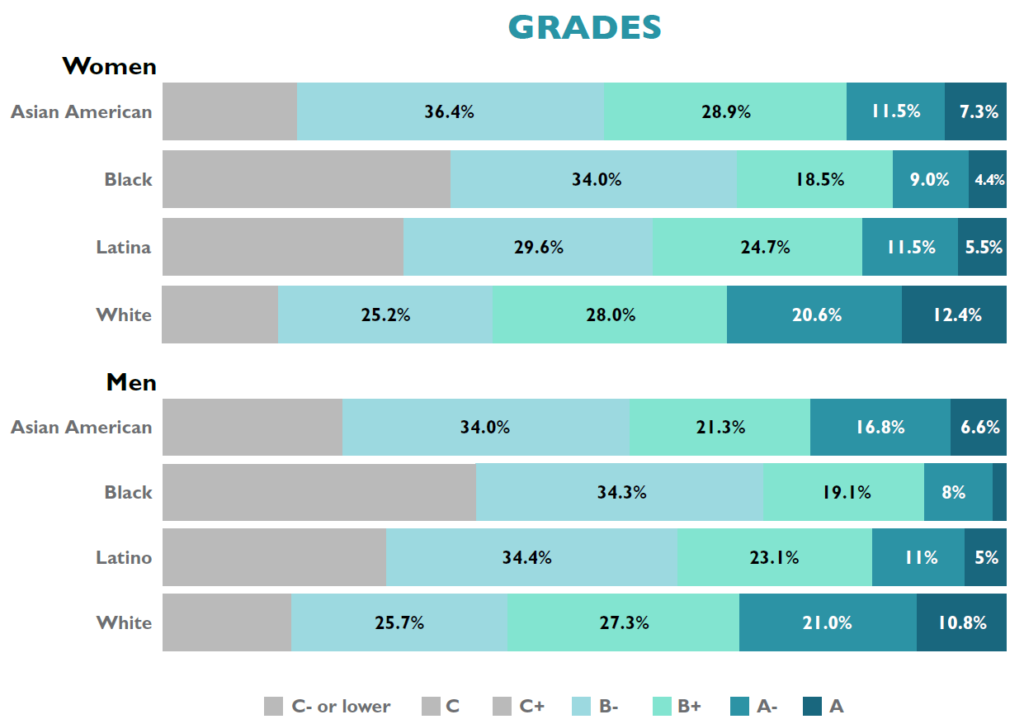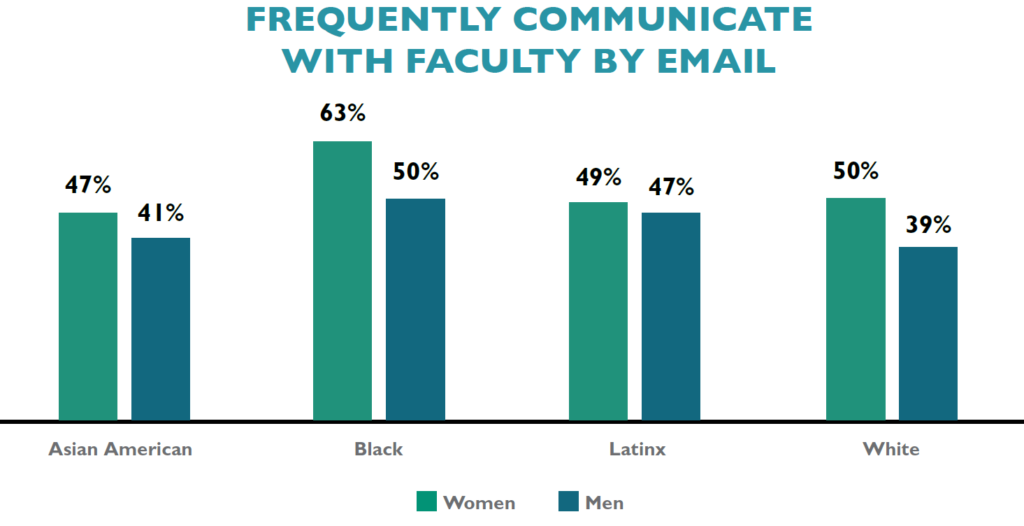The past two decades have seen increasing numbers of women in law schools. After graduating from law school, women lawyers enjoy greater opportunities for financial independence, security of employment, and a potential for leadership facilitated by the J.D. degree. Yet, gender inequities in pay and position continue to plague the legal profession. In spite of this conundrum, there has been little scholarly attention given to the experience of women while in law school.
The 2019 LSSSE Annual Results celebrate women. We investigate the successes of women law students—using objective and subjective measures to reveal various accomplishments. We also interrogate their backgrounds and the context for their enrollment in law school, revealing challenges women overcome and the sacrifices they make to succeed. This Report not only shares findings on women as a whole, but also features comparisons by gender and race/ethnicity, providing greater depth and context to the overall experience of women law students. Our findings make clear that women’s success comes at great personal and financial cost. Greater awareness of these challenges provides both an imperative and an opportunity for administrators, institutions, and leaders in legal education to invest more deeply in the success of women.
The Good News
Women are succeeding in legal education along numerous metrics. When considering overall satisfaction rates, roughly equal percentages of women (81%) and men (83%) report that their entire experience in law school has been either “Good” or “Excellent.” In spite of generally high marks for all groups, there are notable differences by race/ethnicity. While the vast majority (75%) of Black women characterize their overall experience as positive, these rates are lower than those of women who are Asian American (78%), Latina (78%), and White (84%).
In addition to appreciating their law school experience, women are also excelling academically. Women’s self-reported law school grades are slightly higher than men’s. As one example 10.3% of women report earning mostly A grades in law school compared to 9.5% of men. There is important variation not only by race but also by the intersectional consideration of raceXgender. To start, 7.3% of Asian American women, 4.4% of Black women, and 5.5% of Latinas claim mostly A grades as compared to 12% of White women law students. Yet, when investigating grades within each racial/ethnic group by gender, women are nevertheless outperforming men.

Additionally, women are adept at utilizing particular resources in law school, connecting with faculty and fellow students. Just over half (51%) of women use email to communicate with a faculty member “Very often” compared to only 40% of men. In fact, at 63%, Black women are more likely to engage in frequent email contact with faculty than any other raceXgender group. Women, regardless of their racial/ethnic background, are also more likely than men on average to engage in ongoing and frequent conversations with faculty and other advisors about career plans or job search activities. Women and men are also engaged in co-curricular activities at roughly equivalent rates, including the percentages participating in pro bono service, moot court, and law journals. A majority of students also enjoy positive interactions with classmates. A full 79% of men and 75% of women report the quality of their relationships with peers as a five or higher on a six-point scale. Furthermore, 65% of women rely on and invest in membership in law student organizations—which research has shown provide social, emotional, cultural, and intellectual support for many students. Black women (68%), Latinas (65%), Asian American women (60%), and White women (65%) join student groups at higher rates than men as a whole (53%).

Women are clearly engaged members of the law school community. Our next post in this series will discuss contextual differences between men and women before entering law school that suggest women are more likely to have to overcome obstacles to be successful. You can read the entire LSSSE 2019 Annual Results The Cost of Women’s Success (pdf) on our website.
